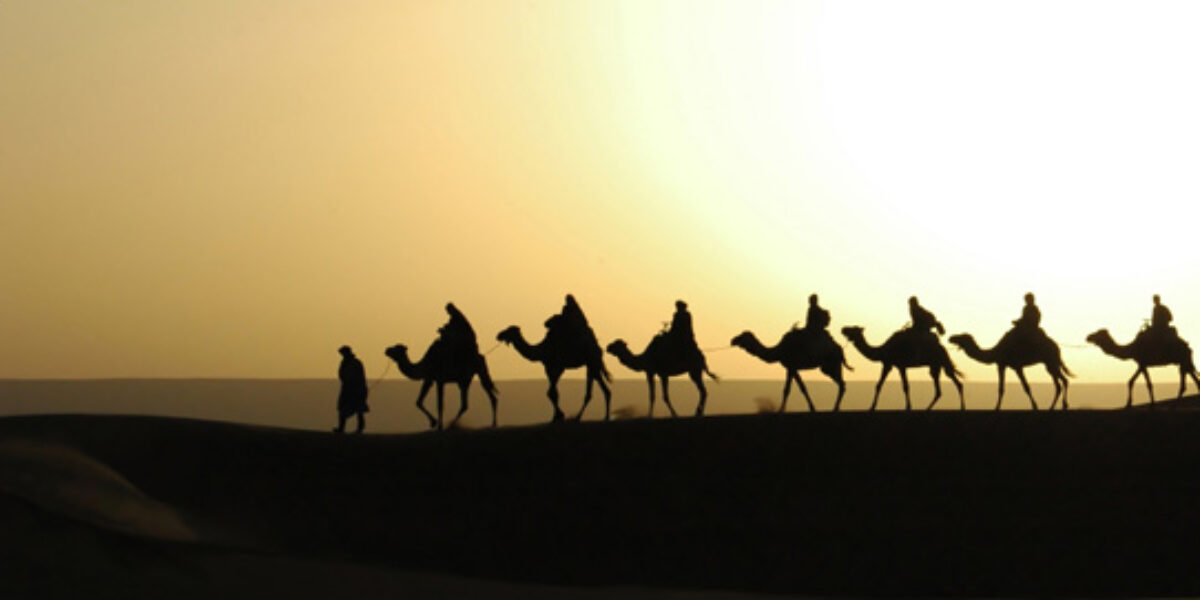Donkeys or oxen? Rivers or seas? See what the logistics of trade were in biblical times.
Throughout the biblical period, trading was usually conducted at the town gate or near the entrance to towns. As trading became more complex, market stalls were set up in central parts of cities. Traveling merchants from other nations also traded their goods in these marketplaces. Traders used a variety of methods to get their goods to the market. Pack animals such as donkeys and oxen carried goods overland. Small boats brought products on rivers and canals, which was often cheaper and easier than overland transport.
In the towns and cities, people made pottery, cloth, metal tools, kettles, and weapons. They usually traded these useful items for food products. In ancient Palestine, items changed hands by a kind of trading called bartering since gold and silver were not plentiful enough to be used to buy things. The use of money in the form of minted coins was not used in Palestine until after the exile (beginning around 538 B.C.). The Persians who controlled Palestine during this time introduced the use of coins in buying and selling.




